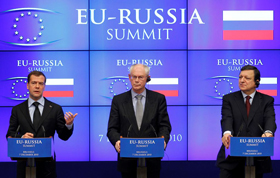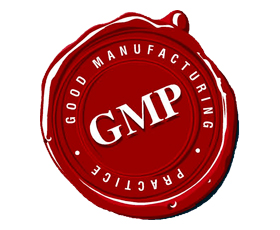The quality of political relations between Russia and the EU has decreased dramatically over the last two years. Yet at the same time, trade and economic cooperation is growing steadily, and the two sides are highly interdependent. Why has the economy still not become a stabilizing factor in political relations? Is economic cooperation truly as effective as it seems on the surface, and what can be done in order to increase its quality?
Economic cooperation is dynamic but of low quality
The first associations that come to mind when thinking about political cooperation between Russia and the EU are the growing gap in values, fundamental discrepancies concerning the European security architecture, and competition for the post-Soviet space. Both sides are visibly tired of excessive expectations. When it comes to the European dimension of Russian foreign policy, Russian politicians more and more express critical assessments of the status quo, tinged with disappointment.
Against this background, economic relations between Russia and the EU seem very dynamic. European countries have traditionally been Russia's most important partners. The EU accounts for nearly half of the Russian foreign trade turnover (48% in 2011, according to the data from the Federal Customs Service of Russia) and about 70% of accumulated foreign investment (calculated using the data of the balance of payments). Trade turnover between the two is steadily growing. Over the past decade Russia has risen in the hierarchy of the major EU trade partners, and currently holds the third place after the US and China; it accounts for 7% of the EU export and 11,6% of the EU import. The notion of "asymmetrical economic interdependence between Russia and the EU" has become a cliché.
However there is much more asymmetry than interdependence in relations between the two. A significant gap still remains in the commodity composition of trade. Energy resources account for three quarters of Russian export, with unrefined oil forming the majority, while machines and equipment account for less than 1%. The EU countries export chemicals (16%), food supplies (8,5%) and equipment (about 48%) to Russia, with industrial equipment amounting only to 8%, which is indicative of the low pace of technological modernization of Russian industry. A similar gap exists within specific economic sectors as well. For example, Russia exports chemicals and mineral fertilizers, i.e. low value-added goods, whereas the EU exports pharmaceutical and perfumery products. As for the service trade, it suffers not only from an unfavorable structure, but also from limited scale.
The volume of mutual investments is quite significant and has been growing steadily; their structure is dominated by credit, and a considerable part of portfolio investment can be described as speculative. Direct investments into the Russian economy amount to approximately 20%, and are primarily aimed at import substitution (the food industry, the car industry), at the retail industry or at access to commodities (oil extraction and electric power). Only a few EU companies invest in Russia in order to develop export production.
European business still regards Russia as a supplier of cheap resources and a receptive market outlet for finished products. It sees little value in the comparatively cheap and highly-qualified workforce. Examples of use of Russian scientific and technological capabilities are extremely rare [1]. Russian TNCs invest into the European economy first and foremost in order to increase sales and occasionally gain access to technology (e.g. in machine engineering).
The existing capacity for economic cooperation is far from being fully exploited, to put it mildly. Russia-EU economic cooperation is essentially developing due to the efforts of big companies. For middle-sized European companies that have competitive advantages in specific sectors (and therefore can be quite beneficial for the Russian economy), political risks and corruption form insurmountable barriers. Russian business is poorly represented in European industrial associations, which decreases its lobbying opportunities. Russian small business is barely internationalized at all, with the exception of very narrow segments (such as software development). On the whole, economic cooperation has not yet led to establishing a consolidated network of corporate contacts which could mitigate political differences.
Reasons for the slowdown
There are factors slowing down the development of economic cooperation on both sides. However, the lion’s share of responsibility is on Russia. High political risks, an unfavorable investment climate, slow structural and technological modernization, administrative barriers, the growing state control of the economy (given the low competitiveness of the public sector), corruption, an opaque regulation system, the omnipresence of “special benefits” for insiders, weak protection of property rights, the relatively low competitiveness of the industrial sector - all of these features are typical of the state-business relations and the relations between political and economic spheres existing under the current political regime.
Certain peculiarities of Russia as a country predictably limit its potential in the domains of foreign policy and foreign economic development. Initiated in 2010, the Partnership for Modernization has had limited success. The task of modernizing Russia has itself been gradually ousted from Russian political discourse. There has been no progress in negotiations on a new framework agreement between Russia and the EU for over a year. One of the fundamental questions has to do with the essence of bilateral trade and the economic regime. The EU considers the “WTO+” to be a free trade zone with a much higher level of cooperation than the traditional free trade zones. The EU's priorities are the liberalization of service trade regulation and liberalization of investments, limited reciprocal access to the public procurement markets, cooperation in the field of competition policy, and the protection of intellectual property. It is obvious that given the existing structure of the Russian economy - commodities constituting the lion’s share of the export of goods, and the fairly low competitiveness of primary branches of the industry and service sectors in foreign markets - this type of free trade zone is disadvantageous for Russia.
The major problem for Russia is the quality of its state institutions, since without reforming them it is impossible to effectively modernize the economy. However, it would take a lot of time to implement reforms of this scope, even given political will and favorable conditions. The analytical report of the Russian group in the “Valday” international discussion club entitled “Towards a union of Europe” postulates that if the existing tendencies remain, both Russia and the EU will ultimately come to lag behind the key international actors economically and technologically. In particular, the stagnation of relations with the EU in the medium-term perspective (5-10 years) could lead to considerable shrinking of Russian export (compared to its growth potential), including the export of industrial goods, and to insufficient use of foreign trade infrastructure. For the last two years, the situation has been developing according to this very pattern.
The "small steps" approach
Within the framework of the inertial scenario, economic cooperation between Russia and the EU should be developed using the "small steps" approach.
The key economic interests of Russia consist of attracting direct investments and competencies linked to them (using new equipment and technologies, improving the quality of corporate management), with a view to using these to broaden the export base. It would be useful to develop a preferential regime for foreign direct investments accompanied by the transfer of technology, while maintaining the possibility of regulating other investments. A joint expert evaluation of Russian and EU legislation regulating access by foreign capital should be conducted, and the possibility of their harmonization investigated. Since this is a very sensitive question for Russia, a good incentive would be to combine this legislation reform with implementing joint projects in the priority spheres for Russia.
It is necessary to increase Russia's participation in EU scientific and technical framework programs. In order for Russian scientific centers to be able to make the fullest use of all possible advantages, it is necessary to finally make a relevant contribution, one sufficient to earn the right to full access to scientific projects, and to the process of commercialization of the obtained results. The transition from isolated (project) cooperation to a synchronization of the scientific and technical development strategies, and the possible development of joint framework programs, could be the culmination of scientific and technical cooperation. Large-scale scientific and technical cooperation is much more important for both partners in the strategic perspective, even more than cooperation in the energy sector.
Given the stagnation of the reform of the Russian standardization system, it is reasonable to carry out the harmonization of standards by adapting Russian standards to those of the EU. Since the adjustment of technical regulations to EU standards often boosts import (as Russian enterprises do not always comply with the new requirements), harmonization in vulnerable sectors could be conducted on the basis of the International Organization for Standardization or other international agreements. The adaptation of Russian standards to those of the EU should be conducted simultaneously with the mutual recognition of national Russian and EU certifications. It would be wise to introduce the principle of recognition of European standards where industrial equipment made outside Russia is concerned, as this will help save Russian business from the unprofitable procedures of certification, and stimulate renovation of fixed assets.
Internationally agreed GMP (Good Manufacturing Practice) standards should be introduced on a mandatory basis wherever possible, which will undoubtedly require overcoming opposition of the sectors' lobbies. But the result is well worth the effort. For example, Ukraine introduced the GMP standards in pharmaceuticals industry in 2009. Now Ukrainian pharmaceuticals can be exported without further certification, unlike those produced in Russia. It is likely that the Ukrainian market will soon be closed to Russian pharmaceuticals altogether.
It is necessary to continue joint work aimed at alleviating trade barriers and first and foremost facilitating administrative and customs procedures.
The options for improving qualifications of Russian government officials abroad should be broadened, taking into consideration the existing experience of cooperation with certain European countries (e.g. Germany).
Besides the above-listed industries (oil extraction, trade, automobile engineering etc.), internal tourism and projects aimed at increasing energy efficiency could be attractive for the European investors.
It is both impossible and irrational to aspire to complete abandonment of raw-material orientation in trade, as hydrocarbon resources are a natural competitive advantage of Russia. In the medium-term perspective it is necessary to work at improving Russian export by developing modern manufacturing and integrating into international inter-sectorial production chains (Sukhoi-Superjet can serve as a good example). The long-term aim is to create joint Russian and European TNCs that would be competitive on the international arena and that would rely on the joint domestic demands of the EU, Russian and CIS markets.
It is necessary to remember that the EU countries have been and will remain key partners of Russia when intensifying cooperation with the CIS countries and the Asia-Pacific region. Joining the efforts and competitive advantages of Russia and the EU could lead to a breakthrough in increasing the global competitiveness of both sides' economies in the long-term perspective. Successful economic cooperation involves the mutual adaptation of institutions, and in this case Russia will have to do most of the work, given that the EU is a source of modernization incentives for it. However in order to use them Russia will first have to complete the process of creating a modern state.
1. Kuznetsov A. Economic ties between Russia and the EU. In: Potemkina O., Kaveshnikov N., Kondratyieva N., eds. The European Union in the XXI century: testing time. Moscow: Ves mir, 2012. 495 p.







